Growing lemongrass and using it is as simple as it gets! Lemongrass is a perennial medicinal plant. Lemongrass that lasts a long time and produces throughout the year. It is a very leafy thicket, has an intense characteristic aroma and a flavor, similar to lemon; hence his name. There are many uses for lemongrass from helping with a cough to repelling mosquitos!
Try growing lemongrass for soups, sauces, of course, teas, and my favorite, infused oils for making soaps. Harvest the leaves for soups, teas, and infusing oils for soaps. Harvest the stems (stalk part) for Thai cooking! Want to know how to grow lemongrass, follow along?
How to grow lemongrass in containers
Lemongrass is a grass of the tropical climate. It loves to be in the full sun. More is better. The plant will definitely benefit from a well-drained and rich soil. Check out HERE if your unsure if your soil will need perlite or vermiculite. If planting in a garden, space them at least 2 feet apart if possible. Their roots like the water to hold in the soil and not leach fast.
I am growing mine this year in a container; if you want to learn all about container gardening, check out this post HERE. I planted one plant in a container that is larger than 12 inches to allow growth.
The lemongrass in this container is in my self-wicking container garden. You can see that whole video HERE.
You may bring in the lemongrass over the winter after it’s cut down almost to the baseline and there are several options for storage.
- Store in a cool basement, water very little during the winter
- Plant in a small pot, place in south-facing winter (bright light), water very little
Lemongrass is one of the herbs of the Cymbopogon family, which is composed of more than 120 species, is perennials; that is, once planted their profitable productive life as a crop is 3 to 5 years.
Growing lemongrass can also be done in a DIY grow bag, you can see more about that in this video HERE.
Zones for growing lemongrass
Lemongrass will survive winters outside above zone 10 since it’s warmer. If you do not want to bring in the lemongrass, treat it as an annual. The plant is very reasonable in price to buy each spring. Even in warmer climates, lemongrass is still very sensitive to below freezing temps and frost. Many ask if lemongrass will come back or return in the spring. It may in zones 8B and 9 since the roots are hardy but there’s no guarantee they will.
The scientific name of lemongrass or lemongrass is “Cymbopogon Citratus”. It is a native shrub from India and a very famous condiment of Thai cuisine and Vietnamese cuisine.
Medicinal and curative properties of the lemongrass … scientifically proven
Have you ever wondered what lemongrass is for? Among the multiple benefits of this bush, are the following:
Lemongrass for Coughs and Fever
The infusion of lemongrass is used to reduce attacks of cough and to fight colds. Lemongrass tea, or feverfew, is used to control fever; since this plant makes you sweat and then this sweat cools you. There are people who say it helps you lose weight; but in reality, the lemon zácate what it does is to eliminate water of your body by means of the sweat and the urine.
How to Make Lemongrass Tea
Making lemongrass tea using fresh stalks:
- Cut the freshly washed stalks into 1-inch chunks
- Boil filtered water-approximately 1 cup
- Take the water off the heat
- Pour the water over the lemongrass chunks
- Let the tea steep for 5 minutes minimum
- Add fresh ginger (optional)
- Honey may be used to sweeten the tea
- Strain off the lemongrass and pour in a cup
Brewing lemongrass tea using dried leaves or stalks:
- Use dried leaves or stalks
- Boil filtered water-approximately 1 cup
- Take the water off the heat
- Either use a tea ball of place in water then stain off after 5 minutes
- Let the tea steep for 5 minutes minimum
- Add fresh ginger (optional)
- Honey may be used to sweeten the tea
- Remove the tea ball or strain the lemongrass and pour in a cup
Dehydrating lemongrass
Even though a dehydrator is not necessary for drying lemongrass, I find it so much easier than not using one. To dry lemongrass naturally without a dehydrator. If you would like to have more information on using a dehydrator, I have a whole post that you can read it Dehydrate food naturally using a dehydrator.
- Lay freshly cut stalks between organic paper towels or I like to use muslin tea towels when not using the dehydrator
- Keep them in the open air and out of the direct sun
- Laying the lemongrass on a screen will work too
- Place the lemongrass on a cookie sheet in the oven, no temperature overnight
- Using a dehydrator, use the lowest or herb setting until completely dry
- Store in a dry, cool and dark place
Lemongrass and Migraines
Severe headaches and migraines: according to a study that lasted 5 years, carried out by the University of Griffith, in Australia, lemongrass tea or lemongrass, relieves the headache of high intensity. With this study, it was verified that the use given to the infusion of lemongrass for the cure of migraines and headaches, by the Australian aborigines for many centuries is really effective. Doctors Lyn Griffiths, Dr. Darren Grice, and Dr. Kelly Rogers; demonstrated that in addition to having an analgesic power is also anti-inflammatory.
Lemongrass and Anxiety
Some use a rollerball with a carrier oil such a fractionated coconut oil and lemongrass essential oil that they rub on their inner wrists, feet, neck, and temples when they feel anxious. Others have claimed when they fill a diffuser with lemongrass essential oil, it greatly reduces their anxiety. I make a lemongrass dish soap that I admit I use when I feel stressed and wash my dishes with it and I feel better. Maybe it’s psychosomatic but it works for me! The link is below in the shop section for the soap and rollerballs.
Lemongrass essential oil as a mosquito repellent
The essential oil of lemongrass has turned out to be an excellent repellent for mosquitoes. It is applied to the skin or the environment. There are even candles that are manufactured with this essential oil that fulfills the function of repelling mosquitoes. If you want to read about the 12 Best Mosquitos Repellent plants, you can read that The best 12 mosquito repellent plants.
Lemongrass essential oil facial cleanser
Lemongrass essential oils have anti-fungal and antibacterial qualities. It makes an excellent skin toner. Steps to using lemongrass toner:
- Wash the whole face with a mild soap
- Pat the face dry with a cotton or linen towel
- Mix 2-3 ounces of a good quality witch hazel with several drops of quality lemongrass essential oil
- Apply this as a toner after the face has been washed and patted dry
- Only use once or twice during the day, right before bed is best
- Do NOT overuse as the combination can cause the skin to dry producing more oil to compensate!
I have a whole blog on the benefits of witch hazel and you can read more Amazing Benefits of using Witch Hazel.
Can lemongrass hurt dogs?
Dogs will eat grass if they need to relieve what is in their stomach. They know how to do this naturally. So, if they chew on lemongrass to help their stomach, it’s perfectly ok since lemongrass is not a toxic plant.
Lemongrass for fleas in dogs
DO NOT SPRAY NEAR THE EYES, MOUTH, or NOSE of a dog-check with your vet if in doubt.
It’s easy to make a flea repellent for fleas in dogs. Use fractionated coconut oil. I am not a fan of fractionated coconut oil but this is one of the few times I buy it. Fractionated coconut oil can stay in a liquid form when placed in the fridge, that’s where I keep my flea spray. Here are the steps for making flea spray:
- Use 1 cup fractionated coconut oil
- Add 4-8 drops of pure lemongrass essential oil (stay away from fragrances)
- Other essential oils that compliment lemongrass are lavender, citronella, eucalyptus, cedarwood, orange, and rosemary, use only 1 drop of these if using lemongrass as the main scent
- Put this in the refrigerator, it will last longer and the coolness feels good on their fur on a hot summer day
- This spray may also lightly be sprayed on the dog’s bedding, carpet, curtains, and such (check a small area before spraying to see if it will stain.
I also use this in conjunction with Diatomaceous Earth-aka (DE), a natural flea remedy I have used for a very long time on my furbabies, indoor birds, in the hen-house, in the garden, and more. You can read that whole blog post Diatomaceous Earth for fleas and other uses for Natural Living.
Is lemongrass safe for cats?
Lemongrass (Cymbopogon Citratus) can be eaten by cats. The lemongrass produces a catnip effect when they nibble on it. Please note that while lemongrass essential oil is perfectly safe for dogs, it is very toxic and harmful to cats. There are other essential oils that are harmful too, wintergreen, peppermint, and tea tree oil to name a few. When in doubt, contact the Pet Poison Helpline or ASPCA before using any essential oils in your home, this includes in a diffuser.
Shop Here
We are a participant in the Amazon Services LLC Associates Program, an affiliate advertising program designed to provide a means for us to earn fees by linking to Amazon.com and affiliated sites.
You will not incur extra fees or charges for using the links. We only recommend items we believe in and have tried. If I personally make or sell an item, I will mention this in the post for each item.
Click on the Bar of Dish Soap to Visit Our Amazon Storefront!
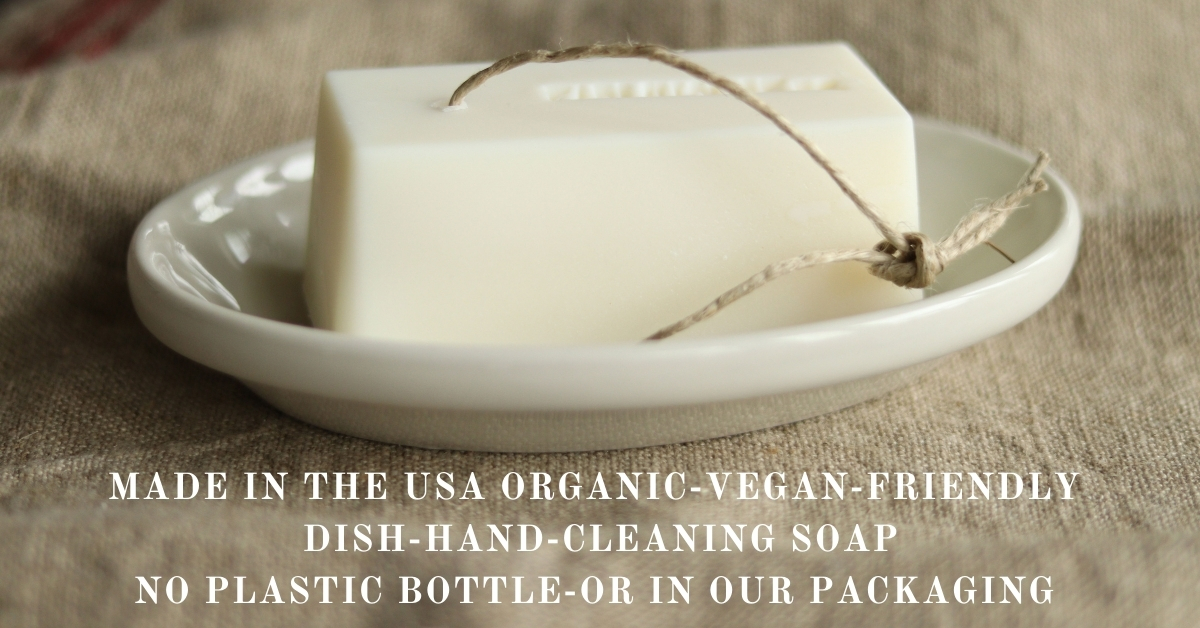
Farmhouse Basic Collection Lemongrass dish soap can be found on Amazon.
Organic Lemongrass essential oil can be found on Amazon
Fractionated coconut oil can be found on Amazon.
Roller bottles can be found on Amazon.
6 pack 2-ounce amber glass spray bottles can be found on Amazon
Thank you for stopping by and reading our blog. If you haven’t signed up for our bi-weekly newsletter, please take a moment and do so. We will not sell, share, or use your contact information. We are also ad-free and will not inundate you with unnecessary emails. Please see the “Let’s get acquainted” box to sign up!
If you do decide to try something mentioned in the blog post; always do a patch test on your forearm or side of the hand to ensure you are not allergic or having an adverse reaction to the product(s).
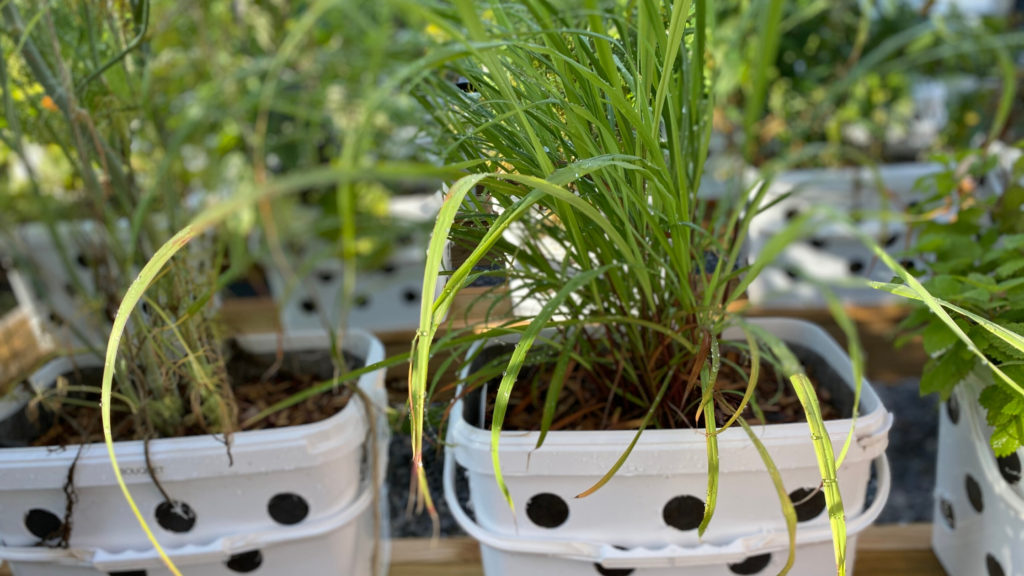
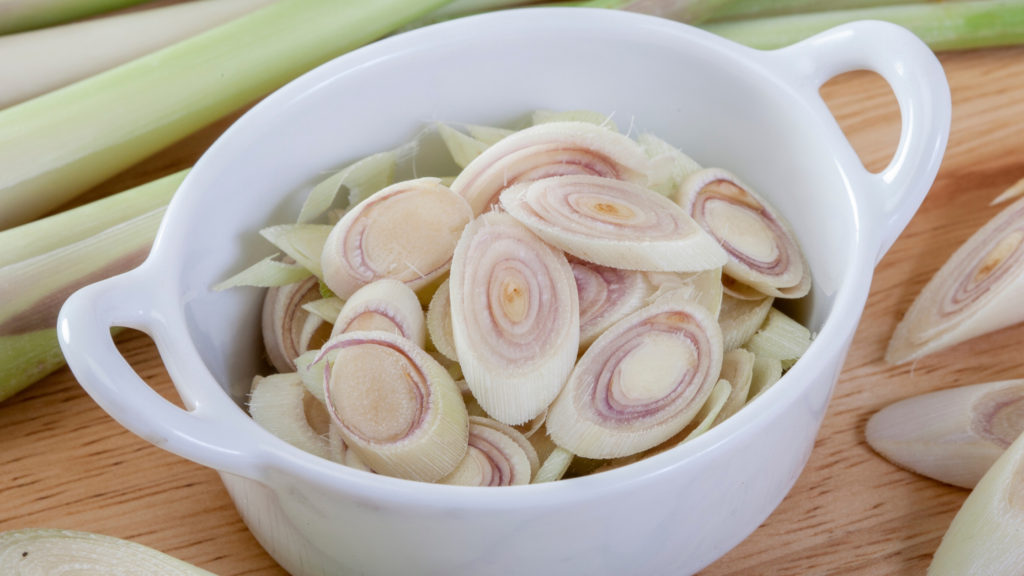
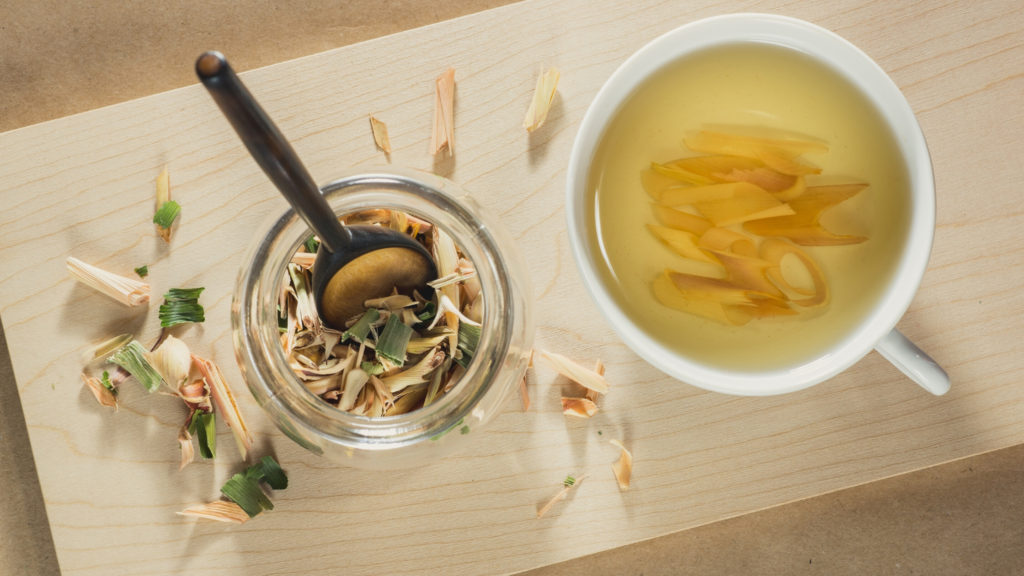
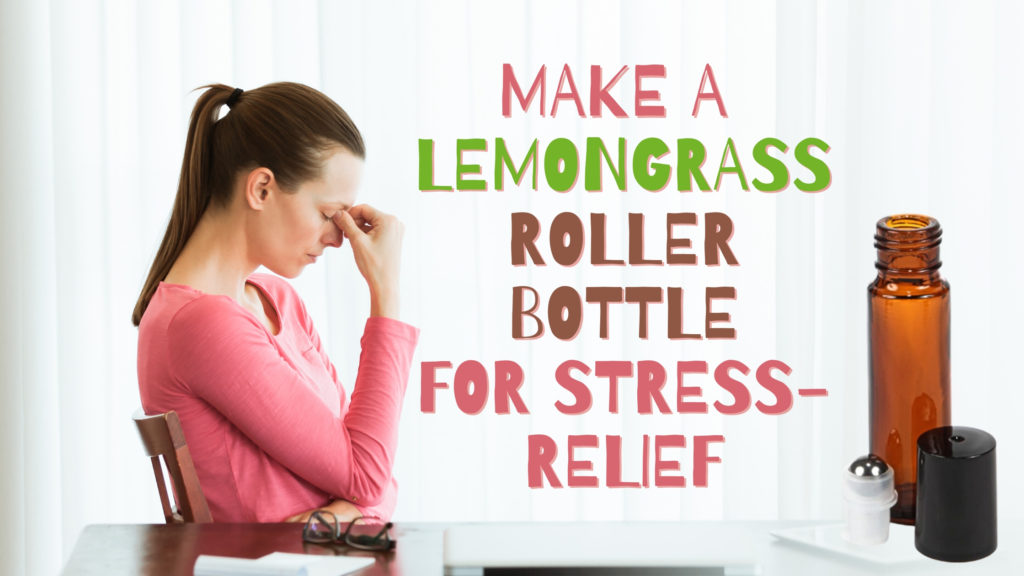
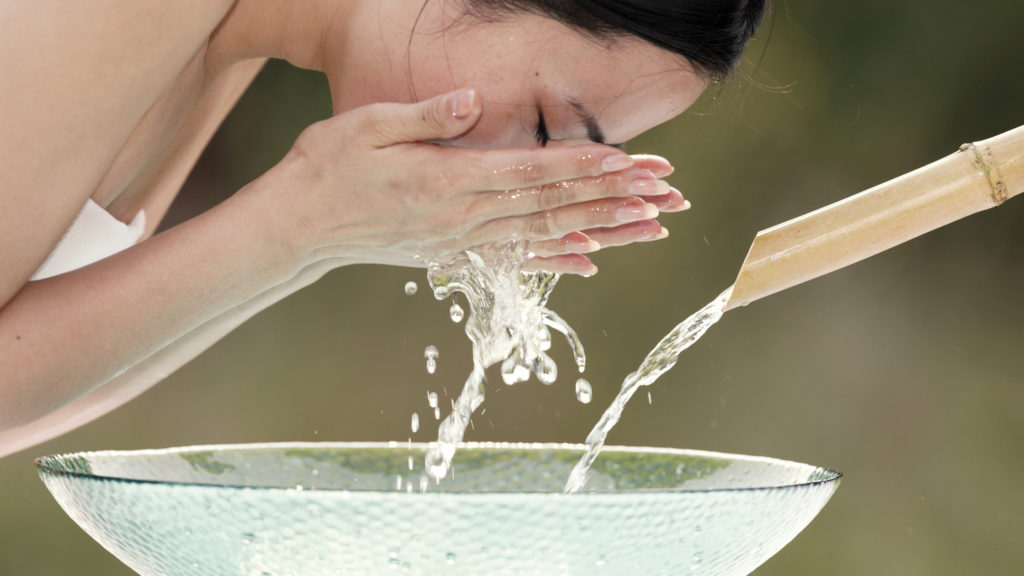
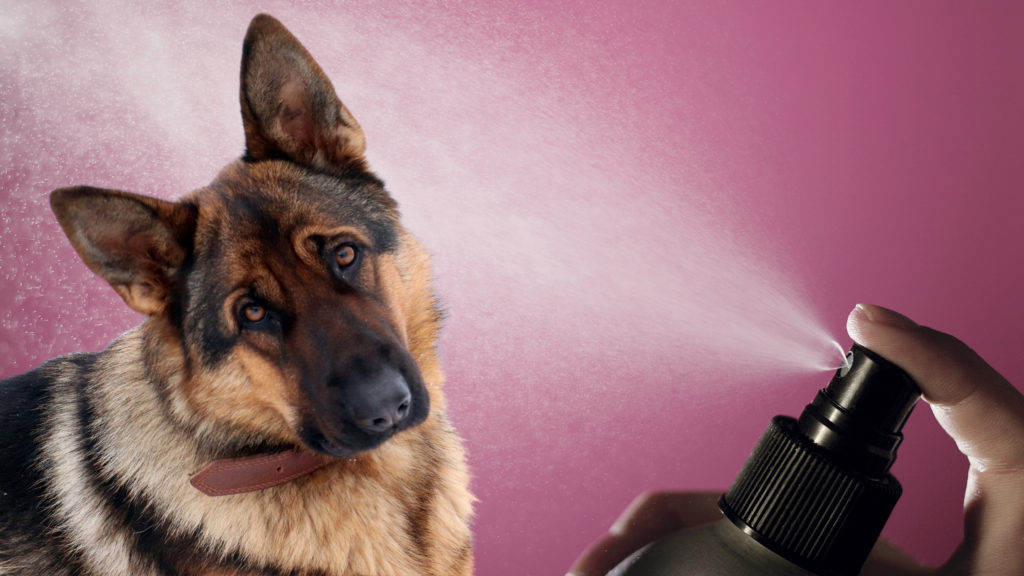
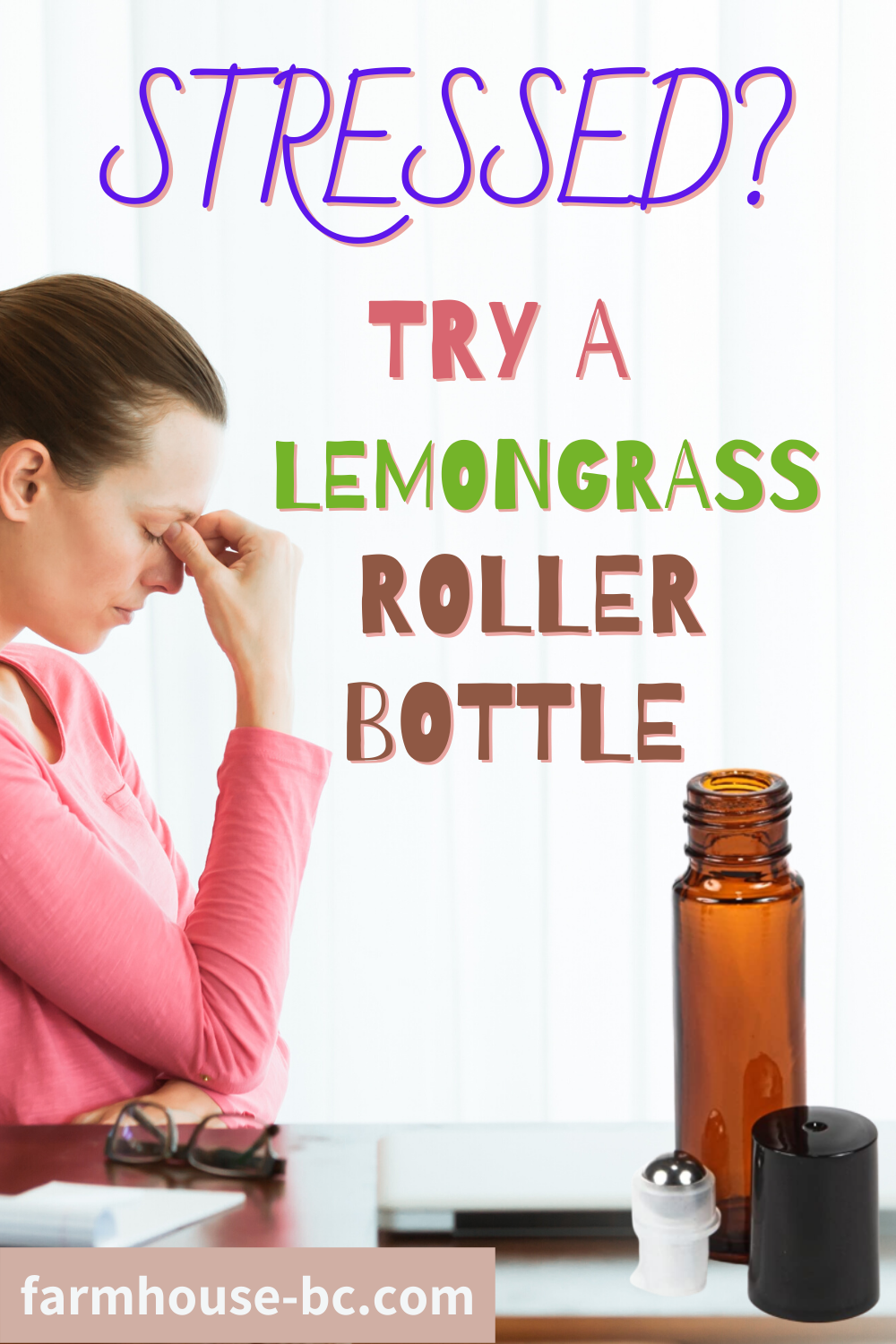
Pingback: Gardening Tips for beginners ⋆ Farmhouse-bc
Pingback: The best 12 mosquito repellent plants - Farmhouse Basic Collection.
I promise it’s easy to grow in a pot on your porch. It’s well worth it! I have so much faith in you, you can do it 🙂
I do so love a good cup of lemongrass tea, and I adore it as a flavour in Thai cuisine. I don’t live in the right climate to grow it, but maybe I’ll try my hand at growing it in a container. Pray that it will survive, Jersey!
I enjoy at the end of the season, to snip it, dry and use all winter long 🙂
Thanks for sharing! My mom was wondering how easy this would be and now I know!! Will definitely try this.
Great Post as always! I love lemongrass in my soap as well!! Fascinating about it being used to treat migraines!
It’s a very easy plant to grow Laura and you will be able to harvest up and past frost.
Thanks, Elsie, lemongrass is so versatile in and around the home.
Thanks, Jayme, I appreciate the comment and you will love lemongrass!
I love everything lemon. I will be adding this to my garden this year. Last year I planted lemon balm. Smells so good.
Thank you for this post! I LOVE lemongrass!! I definitely will be planting some in my garden this spring. Bookmarked this post for future reference.
I love lemongrass but never thought of growing it at home! Thank you for this inspiration and tutorial!
This is so interesting, Jersey. I especially found the part about how dogs know to eat lemongrass if their stomachs are upset. Great post!
Thanks for the helpful tips about lemon grass! I’ve been wanting to learn more about herbs and growing them.